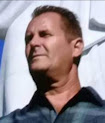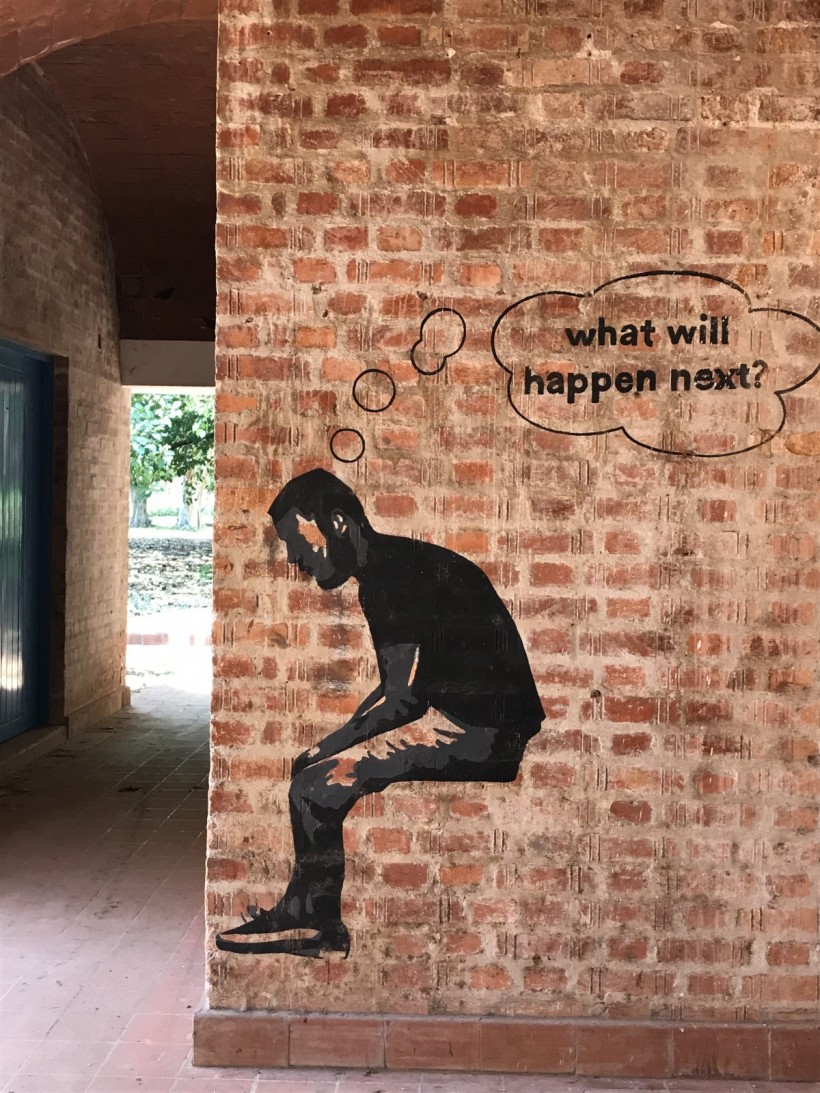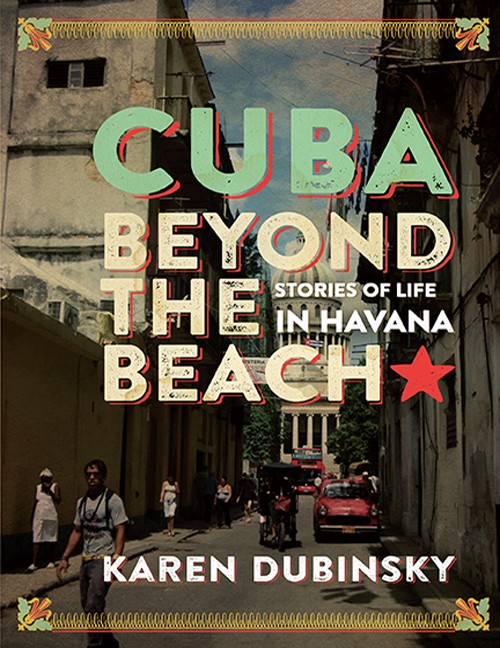02.07.22
60 Years On, The Economic Embargo On Cuba Is An Abject Failure
. . . . Senate Floor
Mr. LEAHY. Today, February 7, 2022, marks the sixtieth anniversary of the day the United States economic embargo against Cuba first went into effect. Sixty years. Three generations, twelve presidents, sixty sessions of Congress, and six transformational decades ago, dating back to the middle of the Cold War.
The goal of the embargo, which has been expanded multiple times, was unmistakable: to depose the Cuban Government by imposing a vast web of punitive sanctions designed to crush the Cuban economy and incite a popular uprising.
To be precise, in a declassified April 1960 State Department memo confidently entitled “The Decline and Fall of Castro”, the purpose was “denying money and supplies to Cuba, to decrease monetary and real wages, to bring about hunger, desperation, and the overthrow of [the] government.”
Sixty years later hunger and desperation are pervasive in Cuba, but the Cuban Government remains under the firm grip of the Communist Party. No opposition party has been allowed to function or to challenge it. Free and fair elections are as elusive as they were sixty years ago. Political dissent is not tolerated.
The U.S. embargo is opposed by every other nation in this hemisphere. In fact, it is opposed by every other nation in the world, except Israel. In other words, after sixty years, we have convinced only one other government – just one – to join us, and not a single government in our own hemisphere. In a failed attempt to isolate Cuba, we have isolated ourselves.
Those responsible for this Administration’s policy toward Cuba have apparently decided that
- despite candidate Biden’s pledge to the contrary;
- despite the failure of the embargo to achieve any of its objectives – which the CIA acknowledged in a declassified report back in 1982;
- despite a worsening human rights situation; and
- despite contributing to the misery of the Cuban people who the White House insists it wants to help, there is no reason to change course.
Today, hard hit by COVID and the Biden Administration’s cut-off of remittances and restrictions on travel by Americans to Cuba, life for most Cubans is an increasingly desperate struggle. Popular protests against the government’s mishandling of the pandemic, mishandling of the economy, and autocratic rule have been met with a fierce crackdown, summary trials, and lengthy prison sentences including for young people.
I have spoken many times about the stark disconnect between this Administration’s policy toward Cuba and the reality in Cuba, so there is no need to repeat what I have said before. I am as outraged by the crackdown on protesters in Cuba as anyone. No one condones acts of vandalism or violence, but provocations and abuse of peaceful protesters are inexcusable.
I also know that trying to bludgeon the Cuban authorities into submission does not work. It has not worked for sixty years.
- It has made things worse.
- It emboldens the hardliners in the government who blame the United States for their own failed policies, and who are determined to hold onto power.
- It hurts the Cuban people, impeding their ability to obtain medical supplies as basic as syringes and masks to fight COVID, and preventing small businesses from accessing U.S. products.
- It flies in the face of our belief in the power of diplomacy through engagement with countries whose governments we disagree with, especially a country 90 miles away with whose people we share so much in common.
Sooner or later – and I hope it is sooner – the Administration needs to face the fact that continuing Donald Trump’s policy of punitive sanctions and vitriol has backfired. The longer they delay that day of reckoning, the worse it will be.
We can do better than this. We can defend human rights, we can stand up for the right of people to choose their leaders in free and fair elections, and we can also do what we do with virtually every other government in the world with which we disagree – find areas of common purpose for the benefit of the people of both countries.
On this sixtieth anniversary of a Cold War policy of sanctions and isolation that has failed in every conceivable way, let us dedicate ourselves to a new way forward that our allies and partners in this hemisphere will support, that the American people will support, that supports the Cuban people, and that is worthy of the United States.
https://www.leahy.senate.gov/press/60-years-on-the-economic-embargo-on-cuba-is-an-abject-failure
*************************
12.06.21
Statement On Cuba by Patrick Leahy
. . . . Senate Floor
Mr. LEAHY. As someone who has observed the evolution of relations between the United States and Cuba for nearly 50 years, particularly since I first traveled there in 1999, I find the situation between our two countries today bewildering, tragic, and exasperating.
Bewildering, because senior Administration officials – who have publicly and privately acknowledged that the 60-year policy of unilateral United States sanctions, isolation, and threats has failed to achieve any of its objectives and instead has hurt the Cuban people – have nevertheless adopted that same failed policy as their own.
Tragic, because the policy has emboldened Cuba’s hardliners who have cracked down even more on citizens who dare to peacefully protest about shortages of food, medicine, and electricity, and against government repression. And it has exacerbated the crisis that has engulfed the island due to the COVID pandemic and the government’s dysfunctional economic policies.
Exasperating, because anyone who understands Cuba could have predicted what has happened since the Trump Administration reversed the Obama Administration’s policy of engagement and would have taken steps to mitigate it. Instead, the current policy is making the situation even worse.
For the past ten months I have urged the White House to not repeat past mistakes when it comes to our relations with Cuba’s government and the Cuban people, and to pursue a policy based on our long-term national interests. I deeply regret that has not yet happened.
Instead, this administration’s policy, so far, has been dictated by a tiny but vocal constituency in this country that has always opposed U.S. engagement with Cuba. It is a policy that history has shown is doomed to fail.
Currently, the United States and Cuba have diplomatic relations, but to what end? There is no meaningful diplomacy being conducted, and our embassy in Havana and Cuba’s embassy in Washington are barely functioning. Consular operations have ceased. The dialogues we had with the Cuban Government on issues of mutual interest, from law enforcement to human rights to public health – dialogues the Trump Administration cut off – have not resumed. How can this be in our national interest?
While Cuba remains on the list of state sponsors of terrorism due to a last minute, politically driven, vindictive, and factually indefensible decision of the Trump Administration, we continue to have diplomatic relations. Is this not irreconcilable? And whatever became of the Administration’s review of that deeply flawed designation which was promised months ago?
Cultural, scientific, and educational exchanges have largely ended. This is neither justified nor in our national interest. The COVID pandemic provided an obvious opportunity for cooperation between American and Cuban scientists, but that opportunity, like so many others over the years, was squandered due to politics, distrust, and spite.
The U.S. Treasury Department continues to block remittances from Cuban Americans to their relatives on the island, even though it is their money, not Treasury’s. Shouldn’t Cuban Americans have the right to decide for themselves whether to send their own money to their relatives, rather than having that decision dictated by the White House? Remittances help Cubans be less dependent on the government, improve their standard of living, and provide the seed capital for Cuba’s growing private sector which today comprises one-third of the Cuban workforce.
The amount of remittances siphoned off by the Cuban government is a small fraction of what some have falsely claimed, and is no more than what other governments charge. Let’s base our policy on facts, rather than on rumor and what plays well domestically.
And Cuba, just 90 miles from Florida, is the only country besides North Korea where travel by Americans is severely restricted, despite our common history and cultural traditions. It’s as ridiculous as it is self-defeating.
The White House has repeatedly said that “democracy and human rights” are at the core of its policy toward Cuba. Those are aspirations – laudable aspirations – but they are not a policy. We all want to see a Cuba where political freedom and fundamental rights, especially freedom of expression, are respected and where an independent judiciary protects the right of due process. Those rights are severely restricted in Cuba today as they are in many countries, including some recipients of hundreds of millions of dollars in U.S aid.
Where we disagree is on how best to support the Cuban people’s struggle to obtain those rights.
I have asked, but I have no idea what the Administration’s practical objectives are in Cuba, or how it proposes to achieve them. After being told six months ago that the State Department was conducting a review of its policy, we have yet to see any change from the policy it inherited from the Trump Administration a year ago. What happened to the review? What did it say?
Several Administration officials have justified the continuation of President Trump’s punishing sanctions because of the public protests in Cuba on July 11. They say “everything changed” on July 11.
Cuba is changing. Access to social media and cell phones has dramatically increased. Attitudes among the younger generation are changing. The Cuban government is making historic, albeit hesitant, reforms to relax restrictions on private businesses. President Obama’s opening to Cuba, which lasted only two years, was instrumental in helping to bring about these changes.
Rather than acknowledge the unprecedented progress during that short period, those who defend a policy of sanctions say Obama’s policy of openness failed because Cuba remains a repressive, one-party state. They completely ignore that the same was true for 50 years before Obama, and for the five years since Obama. When it comes to helping to bring positive changes to the people of Cuba, President Obama wins hands down.
But today the United States is once again on the sidelines, clinging to an outdated policy that history has shown will not succeed. In fact, it is having the opposite effect by denying opportunities to both Cubans and Americans.
United States policy toward Cuba is replete with contradictions, hypocrisy, arrogance, and missed opportunities. Cuba is an impoverished country that poses no threat to the United States, yet we treat it as if it does largely because of our own actions. While we maintain an intricate web of unilateral sanctions that every nation in this hemisphere opposes, the Russians and Chinese are aggressively filling the vacuum as anyone who visits Cuba today can readily see.
Engaging with a government whose policies are anathema to our own does not bestow legitimacy on that government’s leaders or acceptance of its repressive policies. If that were the case, we should cease engaging not only with Cuba but with dozens of governments around the world including several U.S. partners, Saudi Arabia and Egypt being obvious examples.
We condemn the arbitrary arrests, sham trials, laws that criminalize civil society, and the mistreatment and imprisonment of political dissidents. These abuses are common to many countries, and we apply targeted sanctions and we restrict aid. But for purely domestic political reasons we continue to impose a vast web of sweeping sanctions against Cuba, even when the Administration knows they have not worked.
I have said it many times: our policy toward Cuba needs to be guided – first and foremost – by what is in our national interest, not by what is in the interest of a tiny domestic constituency, and not by making demands that we know the Cubans won’t submit to.
Engaging with Cuba affords U.S. diplomats and American citizens the opportunity to build relationships with Cuban counterparts and identify issues of common interest on which to make progress. We saw that during the Obama administration, despite some who could not bring themselves to admit it.
Over time, that is how we can then begin to address the more difficult issues that divide us, knowing that it is the Cuban people, not the United States, who will ultimately determine their country’s future.
This Administration has had ten months to demonstrate that continuing the failed Trump policy of trying to bludgeon the Cuban authorities into submission can produce positive results. There is not a shred of evidence that it can. It never has. Are we going to waste another year and another after that?
I hope not, but that is what will happen if the White House does not change course and show the kind of thoughtful leadership on Cuba that we saw during the Obama Administration, and that was welcomed by a large majority of the American people. As Einstein said and so many have repeated, “insanity is doing the same thing over and over and expecting different results.” This Administration can do better. It needs to do better.
https://www.leahy.senate.gov/press/statement-on-cuba











